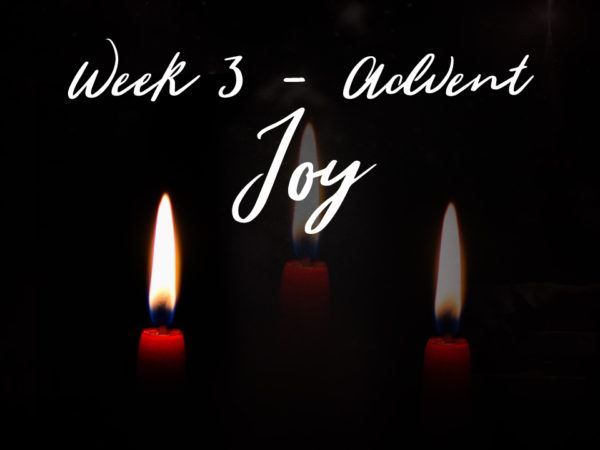Text: Judges 6:11-13, Isaiah 55:8-9
“For my thoughts are not your thoughts, neither are your ways my ways, declares the Lord.” —Isaiah 55:8
Have you ever asked, “If God is with me, then why did this happen?” If so, you are surely not alone.
In today’s text (Judges 6:11-13), we find a young man named Gideon threshing wheat in a winepress. This is indeed a strange scene. It would be akin to practicing your golf swing in a closet. This was both difficult and humiliating for Gideon. Wheat was not normally threshed in a sunken place like a winepress. There wouldn’t be much room to do the work in such a confined space, as winepresses were vats sunk in the ground. Wheat would have been threshed in wide-open spaces, typically on a hilltop so the breeze could blow away the chaff. Yet this was Gideon’s little hideaway, his escape. He did his work here, for fear of the Midianites, who were accustomed to stealing the wheat once it had been threshed. Gideon’s daily grind is governed by fear, hardship, and humiliation.
Why such dire straits? Well, Gideon’s people had betrayed the Lord. They had turned their backs on God in a downward spiral of apostasy. God had not abandoned them, but they had abandoned Him. Consequently, their enemies—the Midianites—were crushing them. Though they were makers of their own demise, God was still faithful. He wasn’t done with Israel despite their failure, and He wanted to get their attention once again.
In his routine toil one day, Gideon gets an unexpected visit from the angel of the Lord. Some Bible scholars refer to this angel as the Lord’s designated messenger, while others describe it as a theophany—an Old Testament appearance of Jesus Christ, in human, bodily form, before His incarnation. What’s most significant is that God shows up in this time of distress and despair. Note that this visitation comes as Gideon is laboring diligently. He isn’t idle, fatalistic, or reserved to apathy because of the tough times his people are facing. Even though he questions the reason why all this misfortune has unfolded, and his faith might be staggering, he hasn’t given up. He is hard at work.
The angel says to him: “The Lord is with you, O mighty man of valor.” Sounds a bit out of place, being that Gideon doesn’t appear very lionhearted. He’s struggling to believe how God could be for him in all this drama. Maybe he looked back over his shoulder to see if there was another person to whom the angel spoke. We see his trepidation in his response: “If the Lord is with us, why then has all this happened to us? And where are all his wonderful deeds that our fathers recounted to us, saying, ‘Did not the Lord bring us up from Egypt?’ But now the Lord has forsaken us and given us into the hand of Midian.”
I’m sure there has been a time or two when you felt like Gideon. If God is with me, then why has He allowed all this to happen? It feels more like He’s checked out and left me to my own survival instincts. There couldn’t be a bigger picture to all this madness; all that’s left is for me to just cope. You’ve been here, haven’t you? I sure have.
So what do you do when you find yourself in the winepress and it seems that God is very distant? Gideon was a simple man living a very ordinary life, going about the daily grind while facing a ton of adversity. As discouraged as he may have been, the angel apparently found him going about his daily duties with much diligence. Some of the most dynamic God-encounters in scripture happen when people are hard at work. They might not be expecting anything out of the ordinary, but their character and work ethic is setting them up for a divine appointment. Consider that Moses discovers his burning bush while keeping the flock. David was tending the sheep. Elisha was plowing the land. The apostles were fishing, washing, and mending their nets. As David Trapp says, “He usually appeared to the busy in visions, like as Satan doth to the idle in manifold temptations.”
I think the most important application in these precious few verses is not looking ahead at what God is going to do through Gideon in the extraordinary chapters of life (as we see further in the story), but Who God is in those very ordinary chapters of life. He is nearer than we think. He hasn’t checked out. He hasn’t abandoned us to ourselves. Thank you, Lord!
Gideon doesn’t have all the spiritual answers in this moment. He can’t understand how God could still be for him when his circumstances are shouting that God is very, very far away. We are left to a mystery of what the Almighty must’ve seen usable in this guy. We see fear. Trepidation. Doubts. Questions. In himself, Gideon sees inferiority and victimhood. But God saw something we, or Gideon, can’t see. He always does. Let that sink in as you seek to abide in Him this week.”
PRAYER
God, You haven’t left us to face this drama alone. You are faithful despite our failures and fickle hearts. You pursue us despite our trepidation, fears, and inhibitions. You never change, though our faith can sometimes feel like shifting sand being pulled out by the tide of doubts and uncertainties. The one constant is Your presence, Holy Spirit. Thank you for Your nearness, regardless of what my circumstances roar. I trust You with the unknown, in Jesus’ name, Amen.
Questions for Reflection, Small Group or Family Discussion:
- When have you had a Gideon-like “If God is for me then why…?” moment?
- In what ways can you relate to Gideon’s circumstances, doubts, or wavering faith?
- Read Isaiah 55:8-9. What does this tell us about God’s perspective on our lives?
- Why do we tend to feel we should have all the answers to life’s drama? What says more about our faith, having all the right theological answers or trusting God’s heart when we don’t?
- Where might you need to stop searching for specific answers to certain circumstances and trust more in God’s ever abiding presence in the those circumstances?
Subscribe to “Abiding In Him” and get the latest devotional in your Inbox once a week.
[yikes-mailchimp form=”2″]


